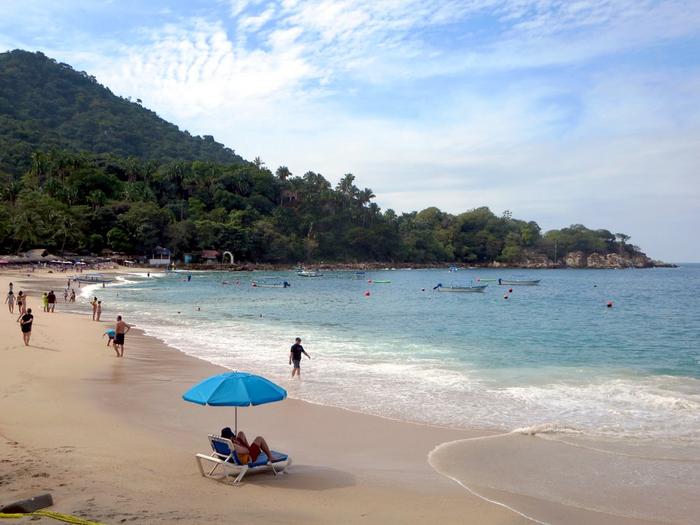For beach lovers worldwide, the sensation of tight, dry skin after swimming in the ocean is a familiar one. While many have long assumed this feeling to be true, it has often been dismissed as an urban myth without scientific backing. Recent experimental research from Binghamton University, State University of New York, has now validated this common experience and delved into the precise mechanisms behind why saltwater dries out human skin. This breakthrough study has shed new light on the complex physicochemical interactions between saline water and the skin’s outermost layer.
At the heart of this discovery is the work of skin scientist Guy K. German, who focused on the human stratum corneum—the outermost layer of the epidermis responsible for barrier functions and hydration retention. German’s team conducted meticulous laboratory experiments comparing the effects of pure freshwater and saltwater on ex vivo human skin samples. The key finding demonstrated that saltwater significantly alters the mechanical properties of the skin by increasing what they term “drying stress,” a mechanical strain that accompanies water evaporation from the skin surface.
Drying stress occurs due to the presence of salt ions, which disrupt the natural moisture equilibrium and elasticity of the stratum corneum. As the saline solution evaporates, it leaves behind salt crystals that effectively draw water out from the skin tissue, resulting in an increased stiffness and a sensation of tightness. German explained that the salt doesn’t just sit passively on the skin; it chemically interacts with skin proteins and lipids, influencing the biomechanics of skin hydration and stress distribution at a microscopic scale.
Crucially, the study employed an apples-to-apples comparison methodology, keeping environmental variables controlled while only varying the salt concentration in the water applied to the skin specimens. This approach provided robust evidence that it’s the salt, rather than water itself, that amplifies drying effects. Quantitatively, saline exposure produced markedly greater tissue stress and mechanical deformation compared to freshwater, corroborating the subjective experience many beachgoers report after ocean swims.
The implications of this finding go beyond simple irritation or dryness. Understanding the biomechanical impact of saline on skin has potential ramifications for dermatological health, skincare product development, and even marine biology. The skin’s mechanical response under saline stress provides insights into barrier integrity, cellular water retention, and can guide the formulation of post-swim moisturizers optimized to counteract salt-induced dehydration.
Despite the apparent discomfort, German notes that saltwater’s drying effect isn’t inherently harmful. In fact, some individuals appreciate the tightened feeling their skin acquires post-swimming, relating it to a refreshing or invigorating sensation. This balance between physiological stress and subjective preference opens avenues for further research into how saltwater exposure can be harnessed or modulated in controlled environments for therapeutic or cosmetic benefits.
Importantly, the research highlights the practical solution to alleviating salt-induced skin tightness that is both accessible and straightforward: rinsing off with fresh water. Since salt is highly soluble, its removal by freshwater showers instantly reduces the drying stress. This small step rehydrates the skin surface, helps restore its natural pliability, and diminishes the unpleasant sensation that follows saltwater exposure.
Scientifically, these observations underscore how everyday experiences are governed by fundamental physical principles such as osmosis, evaporation, and mechanical stress distribution. The study effectively bridges experiential knowledge with rigorous biomechanical quantification, illustrating the ubiquitous nature of physics even in leisure settings like the beach. Through this lens, the ocean becomes not only a site of recreation but also a laboratory for understanding biological-material interfaces and fluid interactions.
The study, titled “Quantification of the mechanical effects of saline on human ex vivo stratum corneum,” was published in the Journal of the Mechanical Behavior of Biomedical Materials. It represents a significant contribution to the field of biomedical engineering by combining mechanical measurements with biological tissue analysis to decode how environmental factors modulate skin properties. This interdisciplinary research paves the way for future explorations into skin mechanics, environmental interactions, and innovative biomaterial designs.
The methodology involved precise mechanical testing protocols to evaluate tissue stiffness and stress response. Using human tissue samples subjected to controlled saline concentrations, the researchers quantified displacement and strain, providing high-resolution data on how salts influence structural biomechanics under drying conditions. These insights are invaluable for both clinical dermatology and the growing cosmetic science sector, where product efficacy often hinges on modulating skin hydration and mechanical resilience.
In conclusion, this once-dismissed urban legend has now become an established scientific fact: saltwater absolutely dries out your skin by increasing drying stress and tissue stiffness in the stratum corneum. Thanks to advances in biomechanical research spearheaded by Guy K. German and colleagues, we understand not only that this sensation exists but exactly why it happens. As summer approaches and beach visits surge, science has offered both explanation and practical advice, ensuring that the joy of ocean swimming can be accompanied by healthy, hydrated skin.
Subject of Research: Human tissue samples
Article Title: Quantification of the mechanical effects of saline on human ex vivo stratum corneum
News Publication Date: 16-Jun-2025
Web References:
- https://www.sciencedirect.com/science/article/pii/S1751616125001328
- https://www.binghamton.edu/biomedical-engineering/people/profile.html?id=ggerman
- https://www.youtube.com/shorts/QkfC8PqpvVU
References:
“Quantification of the mechanical effects of saline on human ex vivo stratum corneum,” Journal of the Mechanical Behavior of Biomedical Materials, DOI: 10.1016/j.jmbbm.2025.107016
Image Credits:
Credit: "Mismaloya Beach" by D-Stanley, licensed under CC BY 2.0.
Keywords: Skin, Dermis, Epidermis, Integumentary system, Anatomy, Organismal biology, Applied sciences and engineering, Engineering, Biomedical engineering, Bioengineering, Water, Seawater




